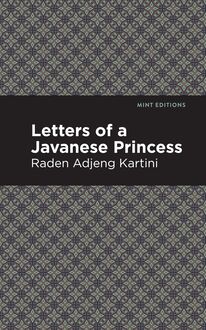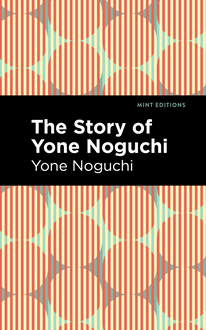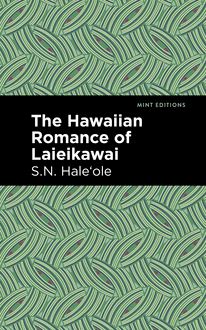-
 Univers
Univers
-
 Ebooks
Ebooks
-
 Livres audio
Livres audio
-
 Presse
Presse
-
 Podcasts
Podcasts
-
 BD
BD
-
 Documents
Documents
-
- Cours
- Révisions
- Ressources pédagogiques
- Sciences de l’éducation
- Manuels scolaires
- Langues
- Travaux de classe
- Annales de BEP
- Etudes supérieures
- Maternelle et primaire
- Fiches de lecture
- Orientation scolaire
- Méthodologie
- Corrigés de devoir
- Annales d’examens et concours
- Annales du bac
- Annales du brevet
- Rapports de stage
La lecture à portée de main
Vous pourrez modifier la taille du texte de cet ouvrage
Découvre YouScribe en t'inscrivant gratuitement
Je m'inscrisDécouvre YouScribe en t'inscrivant gratuitement
Je m'inscrisEn savoir plus
Vous pourrez modifier la taille du texte de cet ouvrage
En savoir plus

Description
With a beautifully redesigned cover, The American Letters of a Japanese Parlor Maid is a classic novel that captures a young immigrant’s transition to life in the United States – its traditions, quirks, frustrations, and glorious delusions.
Accompanied by her uncle, a wealthy industrialist, Morning Glory arrives in San Francisco via steamship. She eventually makes her way to New York City, where she becomes interested in the lives of the working class and decides to test the waters of the American Dream for herself.
Despite her fortunate background, she settles for a role as a parlor maid. With her abundant wit and humorous outlook, Morning Glory records in her letters a foreigner’s view of American life. Through her eyes we see the country in a strange new light, perhaps more truth than fiction.
Sujets
Informations
| Publié par | Mint Editions |
| Date de parution | 21 mai 2021 |
| Nombre de lectures | 0 |
| EAN13 | 9781513287508 |
| Langue | English |
| Poids de l'ouvrage | 4 Mo |
Informations légales : prix de location à la page 0,0350€. Cette information est donnée uniquement à titre indicatif conformément à la législation en vigueur.
Extrait
The American Letters of a Japanese Parlor-Maid
Yone Noguchi
The American Letters of a Japanese Parlor-Maid was first published in 1905.
This edition published by Mint Editions 2021.
ISBN 9781513282480 | E-ISBN 9781513287508
Published by Mint Editions®
minteditionbooks.com
Publishing Director: Jennifer Newens
Design & Production: Rachel Lopez Metzger
Project Manager: Micaela Clark
Typesetting: Westchester Publishing Services
C ONTENTS L ETTER I L ETTER II L ETTER III L ETTER IV L ETTER V L ETTER VI L ETTER VII L ETTER VIII L ETTER IX L ETTER X L ETTER XI L ETTER XII L ETTER XIII L ETTER XIV L ETTER XV L ETTER XVI L ETTER XVII L ETTER XVIII L ETTER XIX L ETTER XX L ETTER XXI L ETTER XXII L ETTER XXIII L ETTER XXIV L ETTER XXV
Letter I
March 20th.
Pine Leaf San,—
I’m ready with my new adventure as a parlor-maid. Shame to be one, you say? Surely its helplessly pale singleness holds some romantic possibility.
No American servant is fit if she be not Irish, I am told, simply because the very first qualification is temper. I fancy I shall be quite at home in that respect. Haven’t I enough of that?
(Did I scare you with such an abrupt beginning, without any sort of customary greeting? I have not wholly lost my memory of how to apologise with a bow.)
In the name of Lord Buddha, what will my “boss” look like?
I can fancy him heavenlily fat, looking even in the early morning as if he had just dined well. I shall advise him to assume the r ô le of a Catholic priest. (Though I daresay no one is allowed to appear so outrageously innocent.)
He will return home with both hands full of paper bundles, giving me a chance to help him. His trousers should be a bit short, and his shoes should not be shined more shan twice a month. A large touch of carelessness in dressing should go to the make-up of a “Self-Made Man” of Amerikey.
Will he smile in his eternally patronizing style? So disgusting to be regarded always as a child! I’m growing awfully tired of American amiableness. If he could be unreasonable like Japan’s Autumn weather!
Smart? Heaven forbid! Clever gentlemen are no longer to my taste.
Will he look reserved? Perhaps he doesn’t know how to talk. Never mind! It will be worth while to deal with him surely. How interesting if he should prove himself a scoundrel by whispering me at first sight: “You are a peach!” Ho, ho! O ho, ho!
Leave such foolish thoughts, Morning Glory! Don’t you know gentleman is only Mr. Nobody in Meriken household? His daily performance will consist of serenely filling a corner of the sitting room. Perhaps he will steal an occasional smoke behind the curtain. Funny, isn’t it, law forbids smoking before “ladies.”
W HAT A LUCKY GYURL YOU are, monopolizing all the delicious hours of Japan Spring!
Won’t you pity your chum M. G.? Imagine a Japanese girl acknowledging the Spring without hearing the Nightingale song! It would be perfectly ghastly,—like no morning paper to Meriken gentleman.
Dear Nightingale!
How I wish to be in England just this minute, since Japan is away beyond any mortal reach! London gardens must be inhabited by my darling warblers. What if Keats deceived the world in his ode? Awful thought!
My uncle—“pocket dictionary”, I call him, being awfully handy to appeal to in filling out the gaps in my knowledge—couldn’t assure me whether English birdie would speak the same as our Japan’s. If he or she (certainly not it) does ever sing the very “Ho, ho key, kio!”
Ho, ho key, kio, O Matsuba San!
Do you remember how we hung a lantern one night among the boughs of my garden plum tree, to show a nightingale one glorious blossom? What a fury I raised when no bird came to be thankful for our treat! I cried all night from my complete disappointment.
My sweet plum garden!
I dreamed about my beloved tree a few nights ago, and wrote a thirty-one-syllabled poem:
“Yume nareba,
Sugata nakeredo,
Kanbase wa,
Omoino sodeni
Nokori nurukana.”
(Thy sight did disappear, as it were only a dream, but here in my sleeves of fancy thy odour did remain.)
Is it too much trouble for you to tie the above “meagre” poem to one of my favorite branches—somewhere in the neighborhood of the sign—whose luxurious coil of blossoms sweeps the ground over the fence, like an American bride’s satin skirt? The sign, you know, in my own handwriting: “One of your fingers shall be cut off for each branch that you steal. Beware, gentleman, your fingerless hand would be piteous as a care-worn old ladle!” My papa may have forgotten to put the sign this year. Poor papa! His forgetfulness is divine.
(Will you tell me, by the way, how the hair tonic is working on his head? May be it is only effective in the Ad., like the Chinese general in his report. How sad!)
How my plum tree would miss my slip of poem! It always accepted my annual offering with such a deliciously divine smile. If the blossoms should be gone before my poem shall “creep under your honorable knees”!
I left all my poetry with Japan. Dear Land of Inspiration, no more with me!
Adieu,
M. G.
P. S.—Mr. Consul recommended to me “the Autocrat of the Breakfast Table.” He clings to an already tarnished idea that old book is always grand.
I right declared my disagreement with Dr. Holmes in baptizing his book. “Breakfast Table”? Fancy any gentleman feeling so comfortable at breakfast that he doesn’t see where to stop till he has filled four hundred pages with his talk! Absurd! I’m positive no Meriken gent can afford more than half an hour for his breakfast. He is so hasty he sometimes forgets to pay a bill laid by his plate. “Summer Piazza Chair” would be a better title.
You will be horrified to learn that I skipped all the poetry. It is my opinion that there’s nothing more stupid than to listen to another’s poems. (I confess I take great interest in reading my own poems to another. Such selfishness!)
Second P. S.—I am thinking whether it is proper for a servant to take a trunk. My trunk is a magnificent affair, suggesting the owner to be an honorable counsellor particularly appointed by our august Emperor.
A Japanese servant carries on her back a few paper handkerchiefs and a night gown wrapped in a square piece of cloth, you know.
Third P. S.—My goddness!
I almost forgot to inquire, “How is your gentle self—I mean your Serene Highness?”
Letter II
21st.
My dear Matsuba:
How did I feel, do you imagine, when I went to see Madam for an engagement?
Do you know anything about a C. O. D. parcel? I felt exactly like one, trembling in tragic fear, having little confidence that I would be welcomed without any disapproval.
“I am an adventurous, sir,” I said gayly, leaving Mr. Consul’s.
Oya, oya! I had forgotten to take my Japanese cards.
645 Fifth Ave.
Wasn’t number my aversion, ever since I suffered a nightmare at my school examination in mathematics?
How sad to see no silver-buskined romance in such an address!
How seriously I wished it were “Fifth Avenue Castle”, not cheapening itself with any 645! If the castle stood half a mile from the thoroughfare! If a regiment of old pines began their parade from the gate, casting their heroic shadows like a design of Korin upon a screen! I would be tempted to plunge into the purple blessedness—ponderous as if with the odor from a dear idol’s nostrils. Isn’t it the place where your papa could recite his favorite song of Rosei awakening from a dream of worldly pomposity? How appropriately “There was only the sound of the pine-leaves” would sound!
I would like to know if there is anything more commonplace than an American door bell.
It’s too unromantically prompt, isn’t it?
I am glad, however, that no one but a telegraph boy has a right to strike very hard.
How dramatic it would be to call at the door, “I beseech my entering,” as at a Japanese country doctor’s!
The most interesting thing with my 645 is the “Stuart-Dodge.” Isn’t that hyphen great? I fancy that Madam would regard it as an insult, if you should ever forget to add “-”. I hoped she were a Countess, but it was my afterthought that a Marchioness would be a deal better. Poor Countess is losing her favor in modern fiction, don’t you see?
Mrs. Stuart-Dodge scrutinized my face through her lorgnette. She must be particular in her use of it, not confusing it with her “nose- spectacles”, since she carries both. Is there any rule when to use them, I wonder?
What if her lorgnette were a microscope!
I felt easy presently, as the texture of my skin is my pride.
“My poor child, did you cut your finger?” suddenly she exclaimed, seeing a handkerchief rolled round one of my fingers.
Alas, no!
Wasn’t I smart to hide my diamond ring under it? How I feared that its brilliancy might revolt, proving my unfitness for a servant’s drooping-eyed humbleness! I might have locked it up in my trunk, if I had had a bit more determination. My handkerchief saved me from the dangerous verge.
“Just a little, Ma’am!” I said lightly, assuring her that it hardly deserved her attention. It would be fatal if she insisted on seeing my finger.
What a relief when she turned her subject to the everlasting servant question!
I readily imagined she might be an honorable member of a certain “Society for the Discussion of the Servant Question.” She could gracefully fill the place of President, I thought, if she were not too busy inspecting whether the door of an ice-box were not open.
(I bet a doller if her present cook isn’t careless about it.)
The first lesson in housekeeping, I am told, is to examine the door of the ice box.
How earnestly I urged her to give me a contract paper with a majestic stamp on it, like that of the Japanese government! Wouldn’t it vindicate me from the slur of being a “dolly set in a glass case,” if the paper were sent to my papa?
Madam laughed, not taking my idea seriously at all.
Isn’t she lovely to pay me $5 extra a month for passing vegetables at dinner and washing dishes?
How she grieved over her second man’s hav
-
 Univers
Univers
-
 Ebooks
Ebooks
-
 Livres audio
Livres audio
-
 Presse
Presse
-
 Podcasts
Podcasts
-
 BD
BD
-
 Documents
Documents
-
Jeunesse
-
Littérature
-
Ressources professionnelles
-
Santé et bien-être
-
Savoirs
-
Education
-
Loisirs et hobbies
-
Art, musique et cinéma
-
Actualité et débat de société
-
Jeunesse
-
Littérature
-
Ressources professionnelles
-
Santé et bien-être
-
Savoirs
-
Education
-
Loisirs et hobbies
-
Art, musique et cinéma
-
Actualité et débat de société
-
Actualités
-
Lifestyle
-
Presse jeunesse
-
Presse professionnelle
-
Pratique
-
Presse sportive
-
Presse internationale
-
Culture & Médias
-
Action et Aventures
-
Science-fiction et Fantasy
-
Société
-
Jeunesse
-
Littérature
-
Ressources professionnelles
-
Santé et bien-être
-
Savoirs
-
Education
-
Loisirs et hobbies
-
Art, musique et cinéma
-
Actualité et débat de société
- Cours
- Révisions
- Ressources pédagogiques
- Sciences de l’éducation
- Manuels scolaires
- Langues
- Travaux de classe
- Annales de BEP
- Etudes supérieures
- Maternelle et primaire
- Fiches de lecture
- Orientation scolaire
- Méthodologie
- Corrigés de devoir
- Annales d’examens et concours
- Annales du bac
- Annales du brevet
- Rapports de stage
















